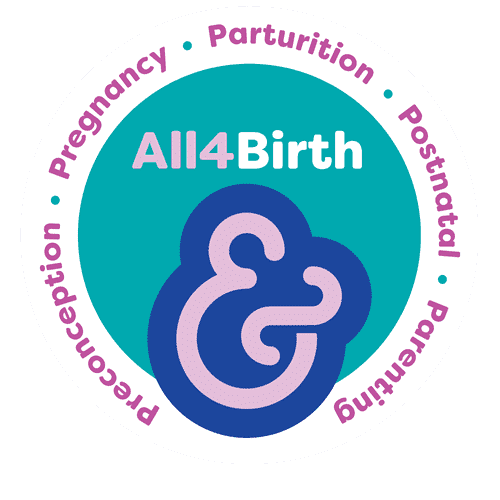Top tips to get breastfeeding off to a good start
By Shaheda Yasmeen- Khan
Registered midwife, Breastfeeding specialist
Instagram @mother.shaheda
Summary
Breastfeeding is a natural thing but it doesn’t come so naturally to many women. The reason for this is mainly due to the lack of resources and funding being put into breastfeeding support and access to adequate breastfeeding support. The education and benefits of breastfeeding are being discussed, there is a huge interest in women wanting to breastfeed and a national drive to increase breastfeeding rates, however, here in the UK we still have some of the lowest breastfeeding rates in the world. The last infant feeding survey that was done in 2010 found that although 81% of mums in the UK tried to breastfeed their newborns at birth, by the end of the first week, 55% of those babies had some degree of formula. Across the UK, at 3 months the number of mothers breastfeeding exclusively was 17% and at 4 months, it dropped further to 12%. Exclusive breastfeeding at six months (recommended by the WHO) remained at 1%. As well the lack of consistent support being a huge contributing factor to our low breastfeeding rates, understanding normal breastfeeding behaviour and managing expectations of breastfeeding mothers is not happening adequately. This also adds to the already unconfident mum to doubt her ability to breastfeed and not make fully informed decisions when it comes to feeding her baby. I will explore my 5 top tips that I would give to a new mum to maximise her chances of having a successful breastfeeding journey. This also debunks a lot of the common mistakes mums and health care professionals make unnecessarily in the first crucial weeks that can impact the breastfeeding experience.
Colostrum harvesting
This is the act of collecting colostrum while still pregnant to give to your baby after they have arrived, should there be in delay or concerns with breastfeeding. At the moment, colostrum harvesting is encouraged when we anticipate feeding issues such as babies born prematurely or if they are known to be small, babies that will go to NICU after birth, babies with mums that have diabetes and twins. However, with the rise of intervention in birth impacting recovering, skin to skin contact, complications post birth, I advise all mums to give it a go. All pregnant women produce colostrum from 16 weeks of pregnancy – fact (unless you have any known breast conditions that could impact your milk production). The best time to try to obtain some colostrum will be at 36 weeks and store whatever is collected in the freezer. It’s not always possible to collect colostrum- and that is OK and normal! There are two things that could be affecting your let down; the first is the technique being used and the second is hormonal. A lot of women do not leak in pregnancy, which again is normal. This is due to the pregnancy hormones suppressing our lactation hormones as our clever body recognises the placenta is providing for the fetus so our breasts do not need to. When some women do leak or manage to collect colostrum, it is because their let down hormone, which is oxytocin (the love hormone) is activated. So if you do struggle to get anything, don’t stress and work on this hormone (feel relaxed, stroke the breast, watch something funny!). Colostrum harvesting also allows women to get familiar with the anatomy of their breasts and understand how lactation works. This makes them feel confident after the baby is here to breastfeed but also, should they need to hand express colostrum postnatally, they are familiar with how to do so.
Uninterrupted golden hour/ skin to skin
Skin to skin immediately after birth is so beneficial to baby (and you!). After your baby is born, they will be placed on your chest with their tummy facing down. This will help to slow down the production of adrenaline hormone, especially in the mother so it doesn’t interfere with oxytocin and prolactin hormones being produced – essential for bonding and breastfeeding! It also allows your baby to use their natural reflexes, senses and instinct to latch on to the breast. Your breasts have gone through changes in pregnancy to facilitate breastfeeding; the darker areola allows the baby to see it as they see in contrasts, the Montgomery tubercles secrete an oil that smells of amniotic fluid which is a smell they are familiar with from inside the uterus, they are able to touch the breast, lick the breast and be close to your heartbeat. All this allows a baby to take its time, not be rushed and learn how to breastfeed. Delayed/ interrupted skin to skin contact can make it longer for some babies to establish breastfeeding. Unfortunately, at times, healthcare professionals can interrupt this precious times due to the checks they must do but these can be delayed. Unless there is a medical need where you are unable to hold your baby on your chest or if you baby requires medical attention, your baby should be placed on your chest immediately after birth and kept there for at least one hour or until they have had the first feed. If for any reason you are unable to do skin to skin, try hand expressing in the first hour. It has been have proven that it can have a positive impact onyour milk production and also breastfeeding going well. By hand expressing within the first hour you are kick starting your milk making hormones, letting them know that the baby has arrived and needs to start producing milk and also preparing your baby’s first feed if you’re unable to breastfeed.
Cluster feeding
Understanding normal cluster feeding behaviour and why this happens is crucial to one’s breastfeeding journey as interrupting this can impact your milk supply production and milk transition. Cluster feeding is when your baby suddenly starts to feed for a long period of time with short/ no breaks throughout the day. Normal cluster feeding commences around day 2-3 after your newborn is born and then you can have sporadic episodes of it in the first 4-6 weeks but can come about anytime in the first 6 months. Babies cluster feed to help stimulate your milk supply and boost it but also it can be for comfort when they are unwell, teething, having a growth spurt. Cluster feeding is normal as long as its sporadic episodes, not painful to your breasts/nipples, baby is thriving with good nappy output. It’s important to just go with the phases of cluster feeding, being relaxed as possible and responsive to your baby’s needs and try to avoid giving formula supplements as this can interfere with your supply production as well as baby’s latch if given in the early days. Seek infant feeding support if your baby cluster feeds constantly from birth for days/weeks past the 2 week mark and/or if it is causing nipple trauma.
Avoid the use of bottles/ pacifiers in the first few weeks
At times, giving a bottle of formula or expressed breast milk is necessary if your baby is having feeding issues which has led to weight loss or the baby becoming unwell. However, sometimes mums are tempted to give a bottle/ pacifier during the cluster feeding episodes or so the partner/family member can help with the feeding. During the first 4-6 weeks, your baby is establishing breastfeeding by getting used to latching, sucking and swallowing and also establishing the correct milk supply for your baby. By giving a bottle/pacifier early on if it is not necessary can impact the learning process of latching and also your milk supply.
Seek support as soon as!
Do not suffer in silence and follow your instinct. If something doesn’t seem right with your feeding journey or you are still struggling, do not hesitate to get support. There are many people and places you can get support. Your midwives and community midwives will support to get feeding started while in hospital and at home. They can also refer you to the infant feeding specialist team if you are having on going issues. Your health visitor will continue this support and can outline any breastfeeding support groups in your area should you need them. There are free resources by La Leche League and Breastfeeding Network online, their helpline and you can actually find local support from their website. Lastly, if you wanted to, you can seek private support from IBCLCs who are International Board Certified Lactation Consultants or other feeding specialists who offer 1:1 support.
Links to resources
 Books
Books
The Positive Breastfeeding Book – By Amy Brown
The Mindful Breastfeeding Book: Preparing you for calm and connected feeding – By Anna Le Grange
 Websites
Websites
La Leche League GB – Friendly breastfeeding support from pregnancy onwards
Breastfeeding | Feeding Your Baby | Start for Life (www.nhs.uk)
















